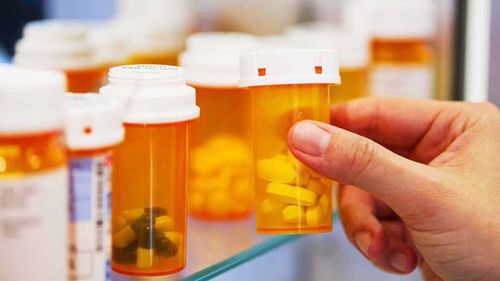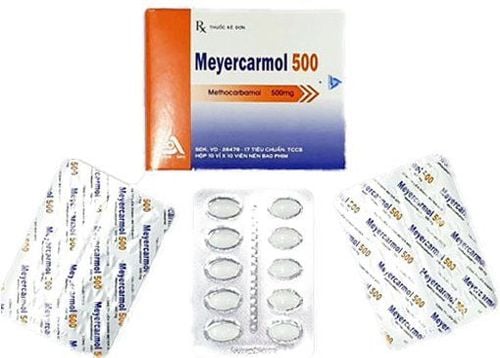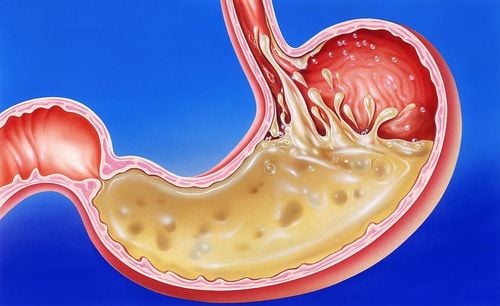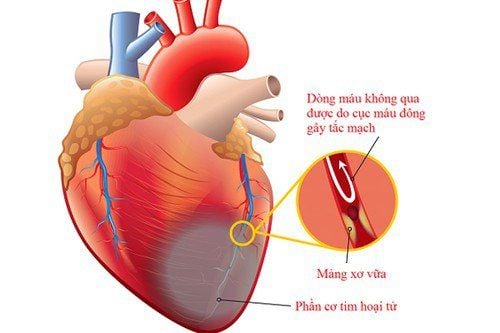This is an automatically translated article.
Posted by Master, Doctor Mai Vien Phuong - Department of Examination & Internal Medicine - Vinmec Central Park International General Hospital
Laryngeal reflux is defined as the reflux of gastric contents into the larynx and pharynx. Large amounts of data suggest an increasing prevalence of laryngeal symptoms in patients with gastroesophageal reflux disease. However, laryngeal reflux is a multifactorial syndrome and gastroesophageal reflux disease is not the only cause related to its pathogenesis.
Although this is a clinical strategy that begins with experimental trials of proton pump inhibitors, many patients with suspected laryngeal reflux have persistent symptoms despite maximal acid suppression therapy. Overall, there are few results to evaluate the effectiveness of reflux treatments (including dietary and lifestyle changes, medical therapy, anti-reflux surgery) for esophageal reflux. manage.
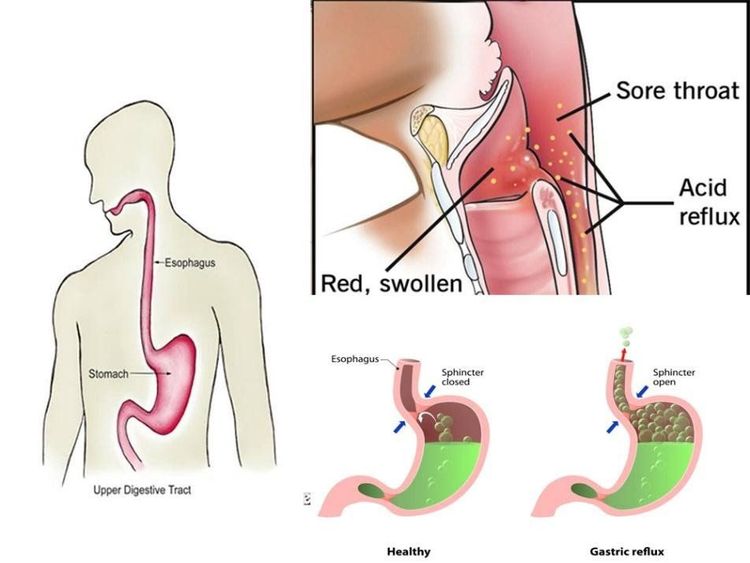
1. The role of lifestyle changes in the treatment of reflux laryngitis
Dietary and lifestyle modifications are effective interventions for GERD, despite the fact that there is little robust published data. According to the treatment used at a UK county general hospital, dietary and behavioral modifications are also found to be very effective in managing laryngeal reflux.
2. Surgical therapy
Endoscopic anti-reflux surgery (LARS) is an established and highly effective treatment for gastroesophageal reflux disease and has been shown to provide relief from typical reflux symptoms. In particular, surgical therapy is useful in allowing the majority of patients with GERD to discontinue acid-suppressing therapy, to achieve resolution of associated esophagitis, and to prevent or even Reversible metaplasia/dysplasia caused by frequent exposure of the esophageal mucosa to gastric contents.
There are some controversial data on surgical outcomes of laryngopharyngeal reflux. A prospective clinical study in laryngeal reflux patients selected for surgical treatment, in which symptoms and signs responded to antireflux drugs, laparoscopic surgery was found. is an effective and safe treatment for laryngeal reflux. Furthermore, in patients with objective evidence of gastroesophageal reflux disease, endoscopic anti-reflux surgery was effective in reducing laryngeal reflux symptoms. On the other hand, Endoscopic Anti-Reflux Surgery has shown disappointing results in the management of symptoms associated with laryngeal reflux in patients who have not responded to aggressive PPI therapy. Similarly, previous studies have demonstrated a poor surgical outcome in resolving laryngeal symptoms, especially in PPI nonresponders.
The surgeon needs to perform a detailed work including gastroesophageal endoscopy, esophagogastroduodenoscopy, gastric emptying test, esophageal pH and impedance measurement and gastrointestinal radiography above for all patients scheduled for Laparoscopic Anti-Reflux Surgery, primarily to rule out malignancy and motility problems such as colic. and gastroparesis and then to detect a cause-and-effect relationship between duration of pathological acid exposure and laryngeal symptoms/detections.
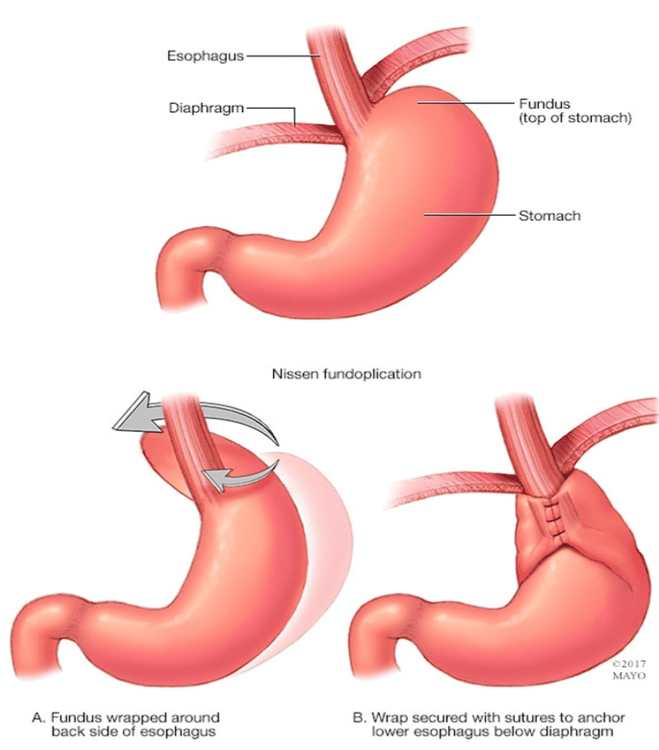
3. What should be advised to the patient before surgery?
Patients selected for endoscopic antireflux surgery should be informed that laparoscopic surgery can correct the underlying mechanical defect but they should be warned that the response to their laryngeal symptoms for surgery is still uncertain. Endoscopic antireflux surgery may be more strongly suggested if the patient finds complete relief of laryngeal symptoms during PPI therapy or if 24-hour pathophysiological studies demonstrate that Major non-acid reflux events. Furthermore, surgeons must carefully select patients before recommending endoscopic anti-reflux surgery and a Regional Referral Center specializing in esophageal surgery is recommended to reduce postoperative complications. . In this regard, patients should be warned about the possibility of postoperative dysphagia, abdominal distension, bloating, diarrhea, and recurrence of symptoms.
To date, clinical guidelines from the American Society of Endoscopic and Gastrointestinal Surgeons (SAGES) recommend antireflux surgery for patients who: (1) have failed or cannot tolerate drug refills; have significant extraesophageal manifestations such as dyspnea, asthma, or cough; complications of gastrointestinal narrowing resembling gastroesophageal reflux disease.
4. Physical therapy techniques and speech rehabilitation
In fact, newer treatment options that are considered alternatives in the treatment of gastroesophageal reflux disease, and especially laryngeal reflux, are being carefully studied.
The lower esophageal sphincter, surrounded by the diaphragm, prevents gastroesophageal reflux and, indirectly, laryngeal reflux. It is believed that the synergy of the function of the lower esophageal sphincter and the periphery of the diaphragm, when stacked, is of importance for the closure of gastric contents. reflux into the esophagus. When these structures become less effective, stomach contents can be pushed back up the esophagus and cause laryngeal reflux. The importance of the diaphragm has also been demonstrated by experimental studies: even after surgical removal of the lower esophageal sphincter, an area of pressure is still detectable due to constriction of the diaphragm. Like any other striated muscle of the body, the diaphragm must be able to improve performance with exercise. For these reasons, alternative therapies for the treatment of reflux disease have recently been investigated, and in particular relaxation techniques/speech therapy such as diaphragmatic training with motor exercises and Breathing exercises were considered.
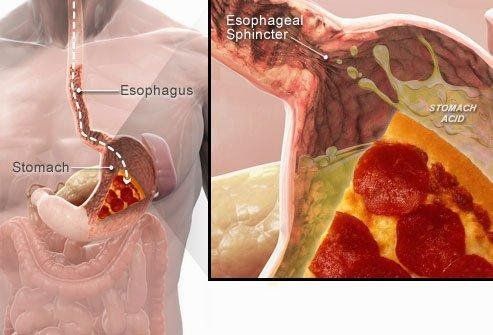
Physiotherapy for Reflux Swallowing
One of the most characteristic symptoms of laryngopharyngeal reflux is choking. Due to the benign nature of this condition and the recent view that gastroesophageal reflux disease is the major cause of choking, empiric therapy with high-dose PPIs has been tried. In patients unresponsive to this therapy, when GERD is demonstrated by laboratory tests such as endoscopy, pH monitoring, and esophageal manometry, alternative therapies may be considered. review, including speech and language techniques. In several studies, certain exercises to relieve throat tension, voice training, and laryngeal hygiene to reduce discomfort and stress have shown significant results in reducing persistent symptoms of choking. However, further research is needed to determine whether speech and speech rehabilitation techniques have a specific effect or whether patients with pharyngeus choking disease simply benefit from more attention. general reassurance or not.
Laryngeal rehabilitation therapy has been used in cases of chronic cough
More recently laryngeal rehabilitation therapy has been applied in cases of chronic cough associated with reflux disease esophagitis, with significant symptom improvement. Carvalho de Miranda Chaves et al showed that, by performing esophagometry, inspired muscle training increased lower esophageal sphincter pressure in patients with gastroesophageal reflux disease after a program. 8 weeks. Eherer et al in a randomized controlled study, showed that actively training the diaphragm with breathing exercises, can improve reflux disease. Quality-of-life scales, pH measurement, and on-demand PPI use were evaluated to monitor patients during short- and long-term follow-up.
All of these studies confirm that diaphragmatic rehabilitation is a potential alternative for the treatment of gastroesophageal reflux disease and laryngospasm, providing long-term relief. drug or surgical treatment. These findings need to be confirmed in further studies with larger samples, longer follow-up and control with quality of life scores and instrumental tests such as impedance measurement and esophageal pH
Conclusion
The management of laryngeal reflux can be divided into lifestyle modification, medical treatment and/or surgery. Behavioral changes and lifestyle modifications are considered first-line treatments with the lowest chance of side effects. The surgical approach needs to be tailored to the individual patient and carefully considered. Upcoming results are available with speech therapy, but these results need to be evaluated in future trials. Surgery should be indicated in a select number of patients in whom massive regurgitation and ineffectiveness of the lower esophageal sphincter are demonstrated by evaluation of esophageal pathophysiology.
To date, we can conclude that, although more research is still needed to evaluate the optimal therapeutic management of laryngeal reflux, a multidisciplinary approach including providers Otolaryngology, vascular, and gastrointestinal evaluation services are recommended to improve diagnosis and treatment in patients with laryngeal reflux.
Please dial HOTLINE for more information or register for an appointment HERE. Download MyVinmec app to make appointments faster and to manage your bookings easily.
ReferencesIrene Martinucci, Nicola de Bortoli, Optimal treatment of laryngopharyngeal reflux disease, Ther Adv Chronic Dis. 2013 Nov; 4(6): 287–301. Altman K., Prufer N., Vaezi M. (2011) A review of clinical practice guidelines for reflux disease: towards creating a clinical protocol for the otolaryngologist. Laryngoscope 121: 717–723 [PubMed] [Google Scholar] Anderson J., Jhaveri M. (2010) Reductions in medications with significant weight loss with behavioral intervention. Curr Clin Pharmacol 5: 232–238 [PubMed] [Google Scholar] Bardhan K., Strugala V., Dettmar P. (2012) Reflux revisited: advancing the role of pepsin. Int J Otolaryngol 2012: 646901. [PMC free article] [PubMed] [Google Scholar] Bough I., Jr, Sataloff R., Castell D., Hills J., Gideon R., Spiegel J. (1995) Gastroesophageal reflux laryngitis resistant to omeprazole therapy. J Voice 9: 205–211 [PubMed] [Google Scholar] Branski R., Bhattacharyya N., Shapiro J. (2002) The reliability of the assessment of endoscopic laryngeal findings associated with laryngopharyngeal reflux disease. Laryngoscope 112: 1019–1024 [PubMed] [Google Scholar]





